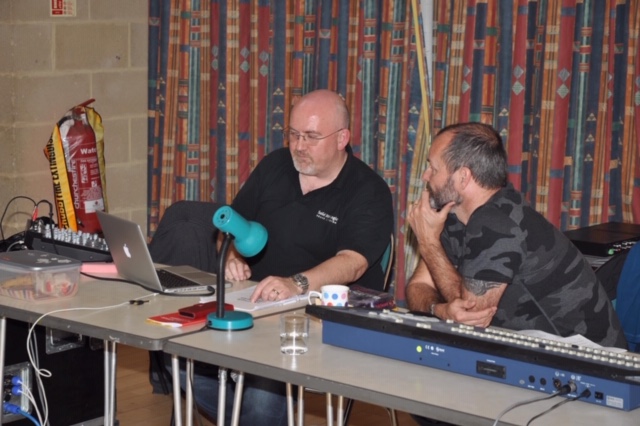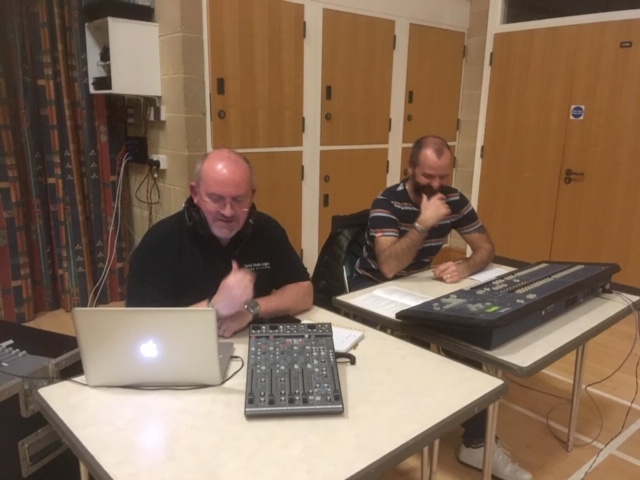Sound Ideas

I have worked within professional audio one way or another for over thirty years. I have the great good fortune to be part of The Wychwood Players to help with their productions whenever I can. It’s a big responsibility, people part with their cash and their time to come and see a production, so it is down to the whole cast and crew to produce the best show we possibly can.
My help may involve various elements of sound recording, design, placement and reinforcement, from the very beginning of rehearsals through to the staging of the show itself.
For a complex production when the actors have an initial read-through, I can record it and produce something like a radio play with effects, so they can listen back to help learn lines and cues. During rehearsals at the barn I will be on hand with a portable amplifier and my laptop to provide sound cues as the actors block the moves and learn their parts.

I can create or source a specific sound the director needs or that the stage directions call for. I really like a challenge - for example in Bob Larbey’s A Small Affair, I was asked to create the sound of “a power failure”, so I edited and mixed together various elements to create a loud and startling fizz-CRACK that resulted in a very satisfying audience reaction!
At the venue the placement and level of the sound is balanced help the audience’s involvement and perception. For example – a telephone may ring from the right of the stage, and then a doorbell may ring from the left. This is important to get right because ears are much better than eyes at determining direction. In Laburnum Grove by J.B.Priestley I had to simultaneously cross-fade, filter and pan the introduction music as the curtains opened to move and reduce the sound to be small and tinny like it was coming from the radio on stage right, and then mute the audio at the moment the actor turned off the radio. The actors are aware the techs are watching very closely, and make the action of switching off a radio or switching on a light clearly visible to us from the back of the hall – but not so obvious as to look weird or ‘hammy’!
I would hope that the audience will experience sound cues as being natural and non-intrusive, so that they propel and accompany the plot without being distracting (unless the sound cue is deliberately being pushed forward for effect). Traditionally a stage telephone ringing was a real telephone, a doorbell was a real doorbell, footsteps were the stage manager treading in gravel; but I prefer to use audio files that I have processed for the purpose to render them as believable as possible. In this way I can construct a complex sound cues list in the correct sequence on dedicated software, to be triggered at the right point in the performance, mixed to the right level and panned to the right position in the sound field.
Music, of course, sets the scene and the period perfectly. Finding the right music for the curtain, for the scene changes, even the music being played during the interval all contribute to the audience experience and I love putting together playlists appropriate to the production. And, as a bonus, I get to crank it up and DJ for the after-show party!
If you are kind enough to spare your time and money and come to a Wychwood Players show at the New Beaconsfield Hall, and you see the techs crouched at the back behind our lighting and sound desks, do come over and say hello, we’d love to hear from you.
Hope to see you very soon!
Anthony Gofton
September 2020